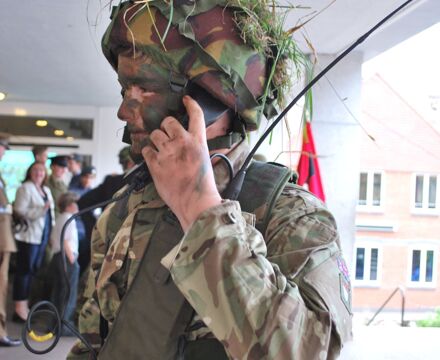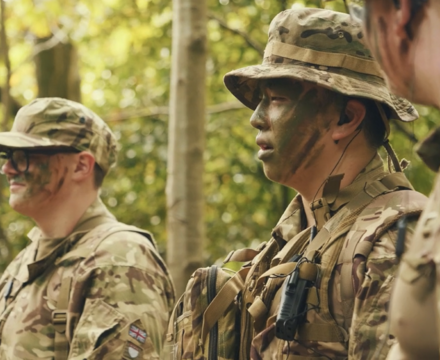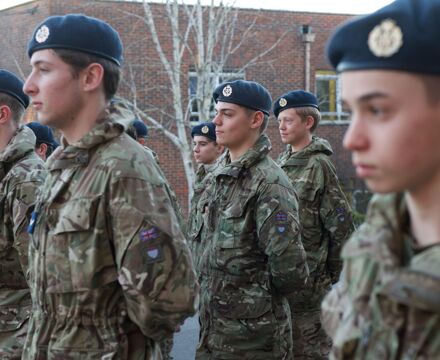- Home
- Extra-Curricular
- Combined Cadet Force
Combined Cadet Force
The Skinners’ School CCF was founded in 1901 as an Officer Training Corps.
Significant support is provided by the MOD, who see it as providing a disciplined organisation for young people in which they can develop leadership, by means of military-style training to promote the qualities of responsibility, self-reliance, resourcefulness, endurance and perseverance, and a sense of service to the community. It also offers a valuable insight into the role and function of the Armed Forces for those who may wish to make it a career.
We run Army and RAF sections. There are over 200 cadets on the roll, of whom around 50 are Sixth Form students. Entry takes place at the end of Year 8, the majority acquiring their APC (Army Proficiency Certificate), usually allied with another specialism such as Advanced Infantry, Engineers or Signals.
Typically, around a third of each year’s entry become Cadet NCOs, undertaking a Method of Instruction course (delivered by Regular Soldiers who are members of Cadet Training Teams), which equips them to take on much of the internal organisation and the instruction of younger cadets.
Officers
OFFICER COMMANDING - Lt Col I A Kelso – Former member of Canadian Reserve Forces, now teaching RS and Classics. Transferred from Surrey ACF in 2006 where he gained significant experience in cadet training.
Captain M S Smith – Old Skinner and former CSM – now a Lawyer who joins us for out-of-school training, including Annual Camp. He is Training Officer for the annual Adventure Training on Dartmoor at Easter.
Sgt Michael O'Brien – Michael joined the school in 2023 as SSI following an exemplary army career which began in 2008. His main duties involve running the office in an efficient manner and training cadets.
Training Opportunities
Weekly Parades – take place after school on Mondays, 15.35-17.00.
Field Days – one in the Autumn, one in the Spring - a full day out of school at the local Training Areas (Ashdown Forest and Crowborough Camp). Fieldcraft and map & compass training are the main activities.
Weekend Exercises - one in the Autumn (24 hours), using local areas, and one in the Spring (48 hours) with 2 nights in an Army Camp, usually at Folkestone. Range firing is an additional activity here, plus more extensive fieldcraft exercises. Attendance is voluntary; normally attended by 50 cadets or more.
Annual Camp - A full week out of school in July, spent at a UK Army Camp. Cadets participate in a range of military and adventure training (eg. rock climbing, kayaking, hill walking) in a different, safe, but challenging environment. Attendance varies from 90 to 120 and places are filled rapidly.
Adventurous Training - A week spent on Dartmoor during the Easter holiday. Training is non-military, comprising map & compass, hill walking, camping, expedition work, rock climbing. Available only to Junior NCOs, numbers attending are usually 15 – 25.
Courses
A wide range of courses, largely funded by the MOD, are available to cadets from Year 11 and above. These include Signals, Leadership, PT, Rock Climbing, Cooking, Parachuting, Kayaking.
Web links to courses:
Cadet Training Centre, Frimley Park - https://armycadets.com/who-we-are/national-cadet-training-centre/
Adventure Training courses (Army) - https://armycadets.com/who-we-are/cadet-centre-for-adventurous-training/
Royal Navy CCF Website - https://combinedcadetforce.org.uk/about-the-ccf/sections/royal-navy-and-royal-marines
BTec - www.cvqo.org
Pages/Links:
For more general service information:
The Royal Navy and Royal Marines - www.royalnavy.mod.uk
The Royal Air Force - www.raf.mod.uk
The Army - www.army.mod.uk
Army careers - jobs.army.mod.uk/












